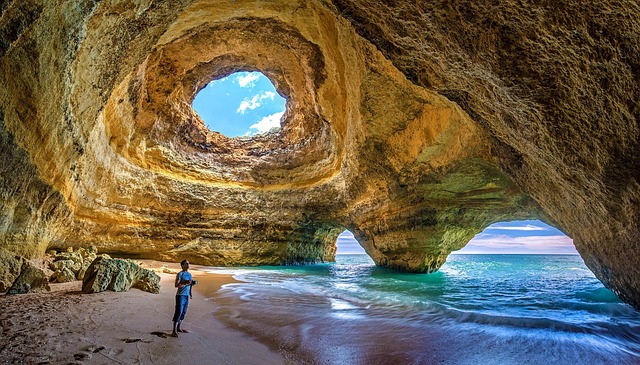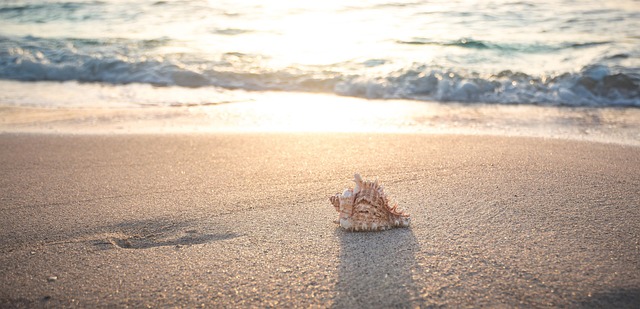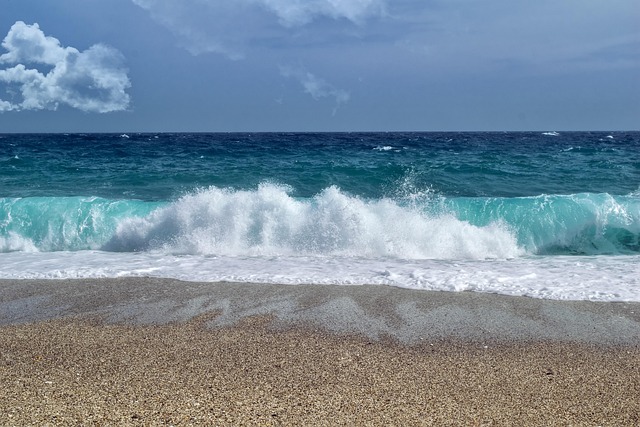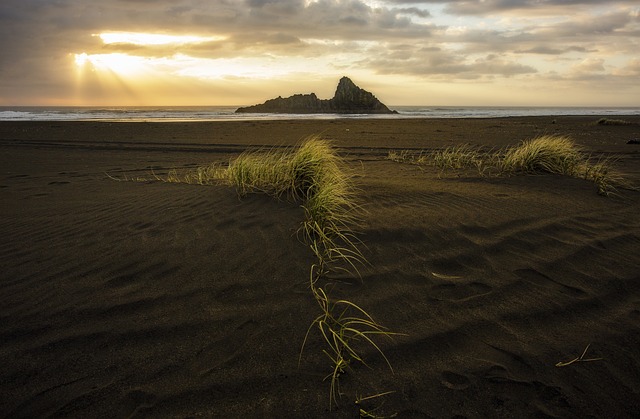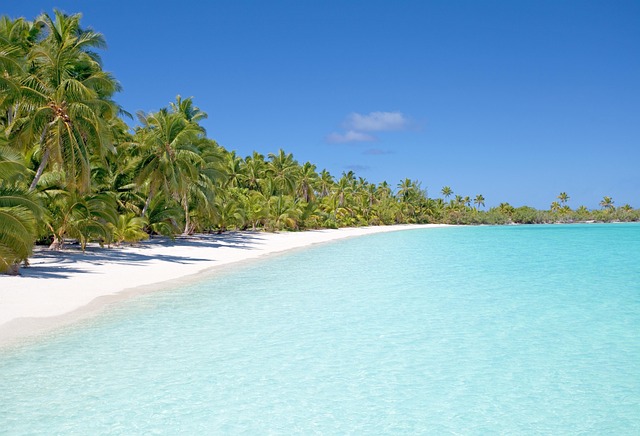Category: Hidden Beaches Near Florence Oregon
Hidden Beaches Near Florence, Oregon: Unveiling a Coastal Gem
Introduction
Welcome to an exploration of one of Oregon’s best-kept secrets—the enchanting beaches nestled near the vibrant city of Florence. This coastal region offers a unique blend of natural beauty, rich history, and a diverse range of recreational opportunities, all waiting to be discovered by adventurous travelers and nature enthusiasts alike. In this comprehensive guide, we’ll dive into the world of hidden beaches, revealing their allure, significance, and what makes them a must-visit destination. Get ready to explore coves, observe marine life, and unwind in an environment that feels like a step back in time.
Understanding Hidden Beaches Near Florence, Oregon
Definition and Significance
“Hidden Beaches Near Florence, Oregon” refers to the secluded coastal coves and sandy expanses that lie just off the beaten path, often overshadowed by their more popular counterparts. These beaches are characterized by their accessibility only via narrow trails, small bridges, or a short walk from nearby trails, making them feel like intimate retreats. What sets these beaches apart is not just their remote location but also the breathtaking views they offer—from dramatic sea cliffs to lush forests and pristine waters teeming with marine life.
The area around Florence boasts a rich ecological diversity, making it an ideal haven for various plant and animal species. These hidden beaches play a crucial role in preserving this balance by providing safe nesting sites for seabirds, habitats for marine mammals, and sanctuaries for rare coastal plants. Moreover, they offer a peaceful escape from the bustling city, allowing visitors to connect with nature and experience a sense of tranquility.
Historical Context
The Florence area has a long and fascinating history intertwined with its coastal location. Native American tribes, such as the Siuslaw and Coos, have inhabited this region for millennia, relying on the sea for sustenance and trade. The discovery and subsequent settlement by European explorers and settlers in the 19th century brought significant changes to the area. Today, the historic charm of Florence is evident in its well-preserved architecture and vibrant arts scene, which pays homage to its rich cultural heritage.
Global Impact and Trends
International Recognition and Tourism
The hidden beaches near Florence have gained international recognition as a unique tourism destination, appealing to travelers seeking authentic coastal experiences. The rise of sustainable and ecotourism has played a pivotal role in this trend. Many travel publications and guidebooks now feature these beaches as off-the-beaten-path gems, attracting a diverse range of visitors from around the globe.
Key Trends Shaping Development
- Sustainable Tourism: There is a growing emphasis on promoting sustainable practices to preserve the natural beauty and ecological integrity of these beaches. Local communities and conservation groups are collaborating to implement responsible tourism initiatives.
- Nature-Based Activities: The region’s abundance of outdoor activities, such as hiking, birdwatching, and marine wildlife observation, is driving interest from nature enthusiasts and adventure seekers.
- Digital Nomadism: With the rise of remote work, many digital nomads are flocking to these hidden beaches for their peaceful setting and reliable internet connectivity, contributing to a unique blend of cultures.
Economic Considerations
Market Dynamics and Revenue Generation
The hidden beach ecosystem contributes significantly to the local economy through various revenue streams:
- Accommodation: Small boutique hotels, bed-and-breakfasts, and vacation rentals cater to visitors, offering cozy stays with stunning views.
- Tourism Activities: Guided tours, kayak rentals, and surfing lessons provide additional income opportunities while enhancing visitor experiences.
- Local Businesses: Restaurants, cafes, and gift shops in nearby towns benefit from the influx of tourists, offering local cuisine and artisanal goods.
Investment Patterns and Opportunities
The unique character and natural beauty of these beaches have attracted investors looking to develop sustainable tourism infrastructure. However, due to their remote nature, development projects must balance environmental preservation with economic growth. Many investors are opting for low-impact, eco-conscious approaches, such as:
- Eco-Lodge Development: Constructing luxurious yet environmentally friendly accommodations that blend seamlessly into the coastal landscape.
- Marine Conservation Initiatives: Investing in research and conservation programs to protect marine ecosystems and attract ecotourism enthusiasts.
Technological Advancements
Enhancing Visitor Experiences
Technology plays a vital role in promoting and enhancing experiences at hidden beaches:
- Online Platforms: Travel websites, social media, and review platforms allow visitors to share their experiences, attracting more travelers and providing valuable insights.
- Digital Mapping: Advanced mapping technologies offer detailed guides to these remote locations, making navigation easier for hikers and nature enthusiasts.
- Remote Monitoring: Sensors and drones are utilized for environmental monitoring, helping researchers study marine life and coastal changes while minimizing human impact.
Future Potential
The integration of technology in the future could include:
- Virtual Reality (VR) Tours: Immersive VR experiences could offer virtual visits to these beaches, attracting those who cannot physically visit and providing a unique promotional tool.
- Smart Infrastructure: Implementing solar panels, wind turbines, or other renewable energy sources for sustainable power generation at coastal attractions.
- Digital Guide Apps: Developing interactive apps that provide real-time information about marine life, local history, and hidden gems along the shoreline.
Policy and Regulation
Governance and Management
The development and preservation of hidden beaches near Florence are governed by various local, state, and federal policies:
- Land Use Planning: Local governments enforce zoning regulations to ensure proper land use, preserving coastal habitats and scenic vistas.
- Environmental Protection: Oregon’s Department of Environmental Quality (DEQ) oversees water quality standards and enforces regulations to protect marine ecosystems.
- Historic Preservation: The National Park Service and local historical societies work together to preserve cultural artifacts and historic sites along the coast.
Legislative Frameworks
- Oregon Coastal Zone Management Act: This state law provides a framework for managing coastal resources, ensuring sustainable development practices.
- National Marine Sanctuaries Act: Federally protected marine areas near these beaches offer additional conservation and research opportunities while limiting certain activities.
- Wildlife Protection Laws: Strict regulations protect marine mammals, seabirds, and other wildlife, ensuring responsible visitor behavior.
Challenges and Criticisms
Overcoming Barriers to Access
One of the primary challenges is improving accessibility without compromising the natural setting. Here are some strategies to address this:
- Enhanced Trails: Developing well-marked hiking trails with interpretive signs can guide visitors while minimizing environmental impact.
- Community Transport Services: Local shuttle services or shared transportation options could be introduced to reduce traffic and provide access for those without personal vehicles.
Balancing Tourism and Preservation
The region’s popularity has led to concerns about over-tourism:
- Capacity Management: Implementing visitor limits during peak seasons and encouraging spread-out visits throughout the year can help manage crowds.
- Sustainable Tour Operations: Enforcing guidelines for tour operators, such as size limitations and environmental education, ensures responsible tourism practices.
- Community Engagement: Involving local residents in decision-making processes helps create a sense of ownership and fosters a positive relationship with visitors.
Case Studies: Successful Applications
Oregon Coast National Wildlife Refuge
This refuge is a prime example of successful conservation and tourism integration. It offers several hidden beach access points, all managed to minimize disturbance to wildlife. Visitors can observe seals, sea lions, and various bird species while enjoying breathtaking views. The refuge’s educational programs and guided tours provide an immersive experience without compromising the natural balance.
Siuslaw National Forest Hiking Trails
The Siuslaw National Forest has developed a network of hiking trails that lead to secluded beaches. These trails are well-maintained and offer interpretive panels sharing local history and ecological facts. This approach not only encourages visitors to explore but also educates them about the region’s rich natural heritage.
Florence Beach Restoration Project
In recent years, a collaborative effort between local conservation groups and the city of Florence restored a section of beach that had suffered from erosion. The project involved planting native vegetation and constructing a natural revetment. This initiative not only enhanced the beach’s aesthetics but also improved its resilience to future storms, showcasing a holistic approach to coastal preservation.
Future Prospects: Growth and Emerging Trends
Expanding Eco-Tourism Opportunities
The region has immense potential to further develop eco-tourism initiatives, including:
- Marine Education Centers: Establishing centers that offer interactive exhibits and workshops on marine life and conservation can attract families and foster environmental stewardship.
- Stargazing Tours: With minimal light pollution, these beaches offer exceptional stargazing opportunities. Guided astronomy tours could be a unique selling point for visitors seeking nocturnal experiences.
- Sustainable Art Installations: Collaborating with local artists to create eco-friendly art exhibits that celebrate the coastal environment can attract a diverse audience.
Digital Integration and Visitor Engagement
The future may see a deeper integration of digital technology:
- Interactive Beach Apps: Developing user-friendly apps that provide real-time beach conditions, tide charts, marine life sightings, and local history facts will enhance visitor experiences.
- Virtual Reality Experiences: Implementing VR stations at visitor centers or creating virtual tours accessible online could attract remote visitors and provide a unique preview of these hidden gems.
Community-Driven Development
Encouraging community involvement in decision-making processes will be crucial:
- Local Co-Creation: Involving residents, conservation groups, and local businesses in planning and development ensures that new initiatives align with the community’s values and needs.
- Cultural Sensitivity: Recognizing and respecting the cultural significance of these beaches to Native American tribes will foster a more inclusive tourism experience.
Conclusion: Embracing the Magic of Hidden Beaches
In conclusion, the hidden beaches near Florence, Oregon, represent a harmonious blend of natural beauty, cultural heritage, and sustainable tourism. By understanding their unique characteristics, historical context, and environmental significance, we can appreciate and preserve this coastal treasure. The global recognition of these beaches as a destination for ecotourism and off-the-beaten-path experiences highlights their universal appeal.
As the world continues to seek more authentic travel experiences, these hidden beaches will undoubtedly remain a vibrant example of responsible tourism development. By addressing challenges through thoughtful planning, community engagement, and technological innovation, the future looks bright for these coastal gems. So, pack your bags, grab your sense of adventure, and embark on a journey to uncover the magic that awaits at these enchanting hidden beaches.
FAQ Section: Answering Your Queries
Q: How do I find these hidden beaches?
A: Many can be accessed via hiking trails starting from nearby towns like Florence or Yachats. Online maps and local tour operators often provide detailed directions.
Q: Are these beaches suitable for swimming?
A: While some areas offer calm waters perfect for swimming, others have strong currents and rocky shores. Always check local conditions and follow lifeguard instructions.
Q: Can I camp at these beaches?
A: Camping is typically allowed in designated areas, but permits may be required. Check with local land management agencies for specific regulations and availability.
Q: How can I contribute to beach conservation efforts?
A: Consider volunteering for clean-up events, supporting local conservation groups, or choosing sustainable tour operators that prioritize environmental responsibility.
Q: Are there any marine life viewing opportunities?
A: Absolutely! These beaches are known for excellent whale watching during migration seasons and offer year-round chances to spot seals, sea lions, and a variety of seabirds.


